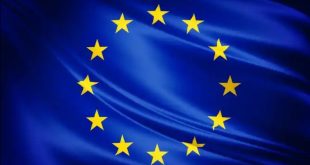By Adamu Danjuma
Through the works of art such as music, performance poetry, painting, illustration and calligraphy, artists in Athens, Roma, Paris, Harlem, Dakar and many more in other cities and communities worldwide, have expressed their feelings.
For instance, a country like France has been greatly influenced by the ancient civilization of Latin and Greek, and by implication, the works of renowned artists such as the famous Eiffel Tower, Arc de Triomphe, Mont Blanc, and Montparnasse, abound. It is pertinent, therefore, to know that art goes far beyond its traditional aesthetic role—it is used in every part of the world to convey a message of harmonious coexistence. Michael Jackson’s “We Are the World” classic is a good example.
Scores of artists are working in various capacities with the United Nations towards achieving the lofty objectives of the global body. In fact, some are its Peace Ambassadors. Because of their vast fan-base which cut across race, religion, politics, sports, etc., artists can easily influence their followers and make an impact on the larger society. Of course, such influence may either be negative or in converse. We’ve seen many artists promoting indecent behavioural attitudes here and there. Remember, an artist is a master of his or her own art. How you use your art matters— a lot!
Historically, African Americans were subjected to discrimination of all sorts. They were derogatorily referred to as ‘Nigga.’ Going back to the archives of history of African literature on the diaspora, we find that W.E.B. Du Bois, alongside other Afro-Americans in their ghetto, started using diversified mediums of the art to protest prominent divisive policies like segregation, inequality, racial discrimination, and other social vices the ‘Niggas’ we’re being subjected to in America at the time.
They used Jazz, Hip-hop, poetry slam, graffitis, as well as music to express their innermost thoughts.
During wars, artists are expected to mobilize their talents so as to promote peace and unity in their warland. However, the reality out there is relatively different. Nonetheless, during the World War I and World War II, artists were deeply active. Some of them, like France’s Jean Paul Sartre, even engaged in the struggles in one way or another. In South Africa, for example, Nelson Mandela was also considered a political writer. He wrote several articles and stories before, during and after his over 20 years in incarceration. In many of his assertions, Madiba used literary and artistic devices, especially alliteration and rhetoric, to share his political views.
Artists are also ambassadors. MTN, Glo, Jumia, and many other companies, are using them to achieve strategic goals. Through such ambassadorial contracts, these brand artists are able to influence their audience to support company brands as well as buy their products. So, here, we see artists using their talents to solve problems.
In Senegal, people have already started enjoying the works of their artists. Youssou Ndour, for example, has recorded a song recently. In it, he paid homage to the award winning Cameroonian singer who died as a result of Covid-19. Ndour has also used his song to sensitise his countrymen, in the wolof language, to follow the instructions of health professionals so as to keep safe and remain healthy.
For Soyinka, a writer is like a visionary of his people. He anticipates. He warns. Similarly, Achebe argued that his weapon is literature.
For every writer, especially those that are humanist, writing goes beyond sheer entertaining. Like an antidote, a piece of write-up can heal, too. Not all writers know how to use their writing skills to bring about positive and sustainable solutions in their respective societies, the world over, and our common humanity in its entirety.
In this context, Maya Angelou is a shining example. She has used her poetry to fight for freedom and independence. She promoted, in her own unique way, the cause of women of colour in America. In fact, she taught in universities without a PhD degree— and I don’t think she ever had a postgraduate diploma. Additionally, Angelou was the second poet in the history of America to recite a poem during the official inaugural ceremony of a former US President. A bard, she was, and her name will continue to resonate in the hall of fame.
In this critical period of our history, we need artists to keep us motivated. Nigeria’s Mark Angel is doing it in his own way to make people laugh— and I think millions of people are eager to see more of his productions. On the other hand, an influential artist like Naira Marley just might need to do a video sensitising his huge fan-base on the reality of, and danger posed by the novel Coronavirus as well as its preventive measures then post such video on his Twitter handle. It will go a long way to supplementing the effort of the government in the fight against Covid-19.
Artistically, we can use our talents to defeat Covid-19. Do you paint for money? Wonderful. Therefore use your painting skills to educate the masses. Are you a sensational singer? Kindly use your songs to champion sound mental health and personal hygiene such as washing of hands thoroughly with soap and the appropriate use of hand sanitizers. Are you a poet? Like William Shakespeare, can you ‘compare thee to a summer’s day?’ I urge you to write poignant pieces of poetry to influence your readers that Covid-19 is real, and the need for them to stay in their houses and avoid unnecessary visitations.
We all have a role to play in order to stop the spread of Covid-19. The time to start is now. The place to start is right here. Remember, do what you can, with what you have, right where you are. Remember, life itself is an art.
 National Telescope national telescope newspaper
National Telescope national telescope newspaper



